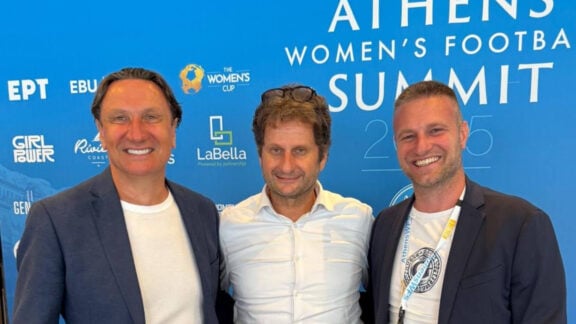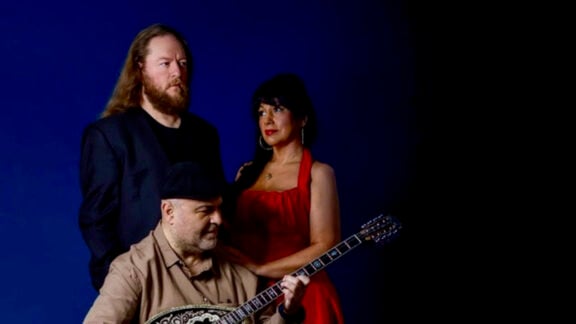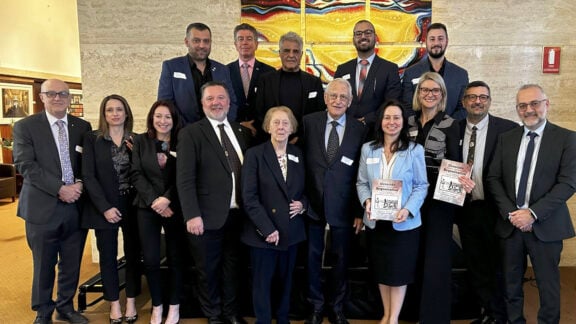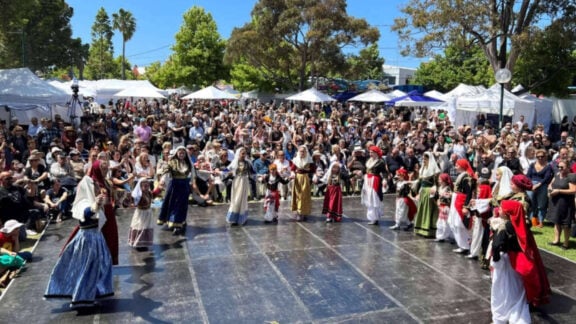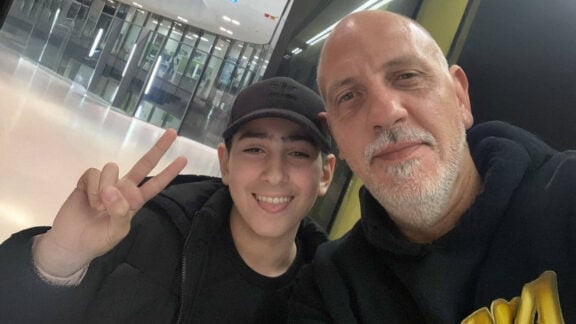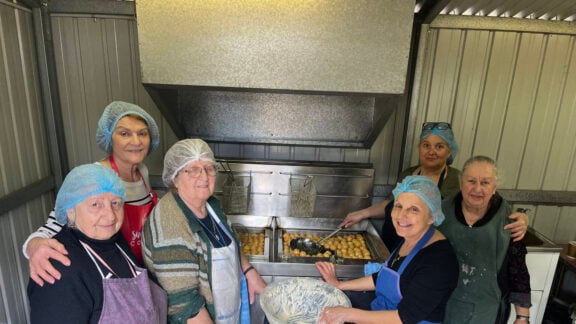In the past month, two groundbreaking tools developed by Dementia Australia and Deakin University’s Applied AI Institute to improve the lives of people impacted by dementia, have received significant awards.
BrainTrack, a free app that helps you privately monitor and understand changes in cognition over time, through fun, travel-themed games, won the 2023 National iAward in the Community/Not-for-profit category a few weeks ago.
This award followed another significant recognition, with their project, ‘Talk with Ted,’ winning the 2023 Simulation Australasia Project Innovation Award.
Behind these technological advancements is a team led by Andrew Vouliotis, an Australian of Greek and Italian heritage who spoke to Neos Kosmos about these projects designed to improve the quality of life for people living with dementia, and support those caring for them.
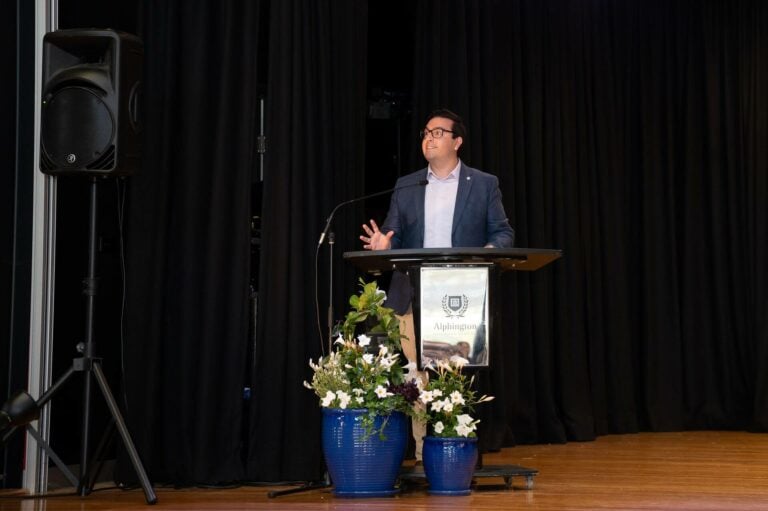
“I have a passion in developing high impact technology solutions,” the project leader told Neos Kosmos. “I like working on solutions that try and do something positive for society. And BrainTrack is one of those projects that really has. We’ve been able to reach so many people around Australia.”
More than 55,000 people had downloaded BrainTrack since its launch in October 2022, giving the opportunity to those who have concerns to reach out early so support and intervention can be accessed.
“With more than 400,000 Australians living with dementia – which is projected to increase to more than 800,000 people by 2058 – it is vital that we focus on early diagnosis and quality dementia care,” Maree McCabe AM, CEO Dementia Australia said in a statement, congratulating the incredible teams behind both of these innovative tools.
“BrainTrack is not a diagnostic tool,” Vouliotis explains.
“It’s there to give people the motivation to start the conversation about dementia earlier, to seek help within a shorter period of time, in the hope of delaying the decline. Nor is it a brain training app. There are already many apps that do that. This one is all about getting people to speak to their doctor if they feel like something is changing with their brain.” By sharing their results on BrainTrack with their GP they can support the early identification of cognitive changes over time that may warrant further testing.
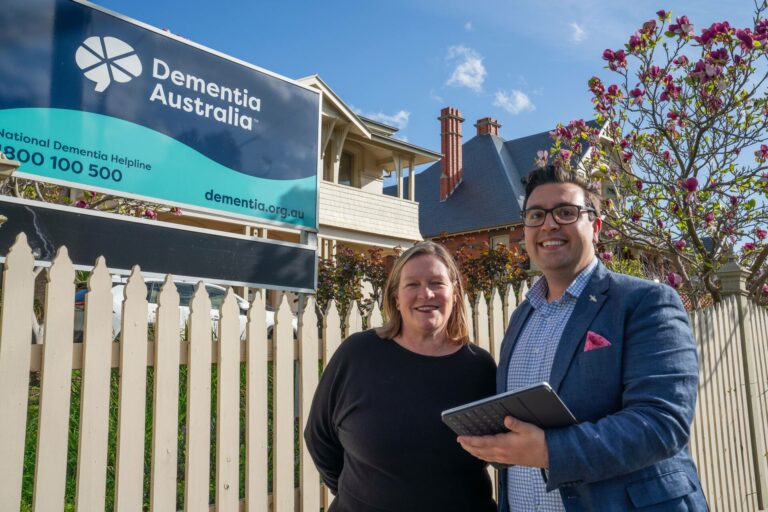
Currently, there is a research trial on BrainTrack with 13,000 participants, Vouliotis says. This research trial that’s funded by the medical research Future Fund is focusing on two groups, the general public, and what it is like for someone with an issue of cognition to use the app, and whether this piece of technology has empowered them to actually go and have that conversation with their doctor.
The second part of the trial will be for the doctors and how this app can be useful to them as well.
What they have found from anecdotal stories, is that some people use it as a family to compare results. “It’s also meant to be a friendly way for someone to refer it on to a family member, too, reducing the stigma around medical testing tools.”
“Many people were in tears and shared their story with us about how BrainTrack has helped with discussing fears around dementia and how this app can make such a big difference for their loved ones. It helps empower people with Dementia be in control of communicating what they are experiencing.”
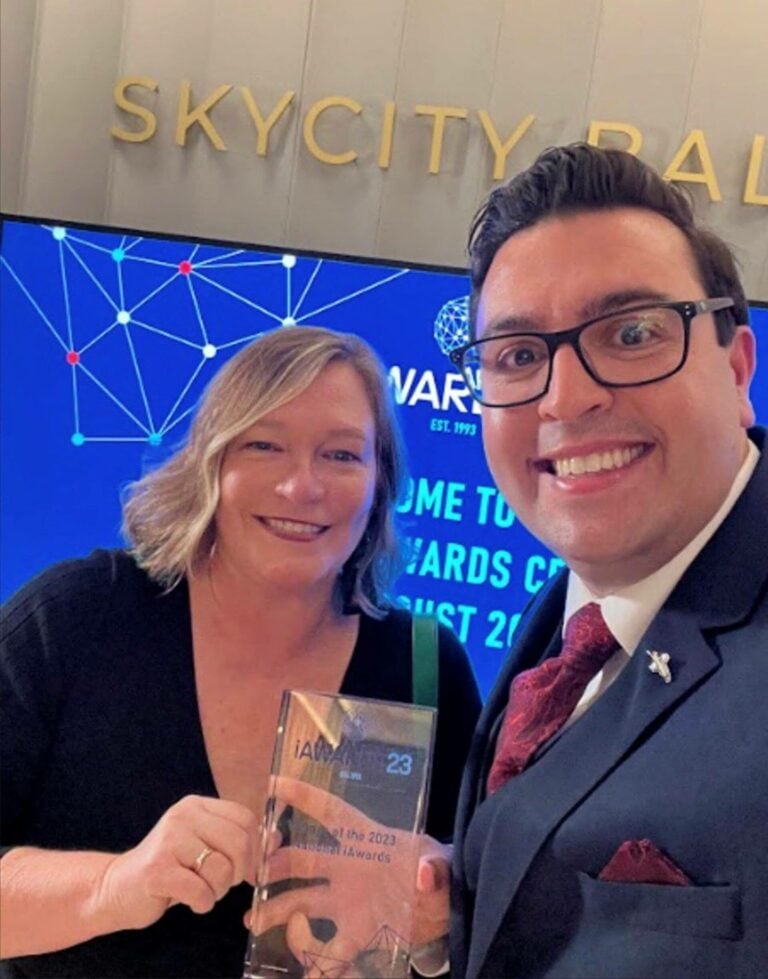
‘Talk with Ted’ on the other hand, is an immersive simulation designed to educate participants on how to better communicate with people living with dementia.
Ted, an Artificially Intelligent (AI) Avatar with symptoms of dementia, provides a realistic simulation for care workers and those supporting people living with dementia to practice their communication skills and learn how to better care for them.
“Even family members have tried Talk with Ted, because it is really about practising communication skills and becoming confident about it. It has been trialled on hundreds of users, and what we generally found, was that a lot of people who have English as a second language – and a lot of carers do- found that the tool allowed them to feel confident while speaking English, and feeling understood, and could practice communication in a safe environment.”
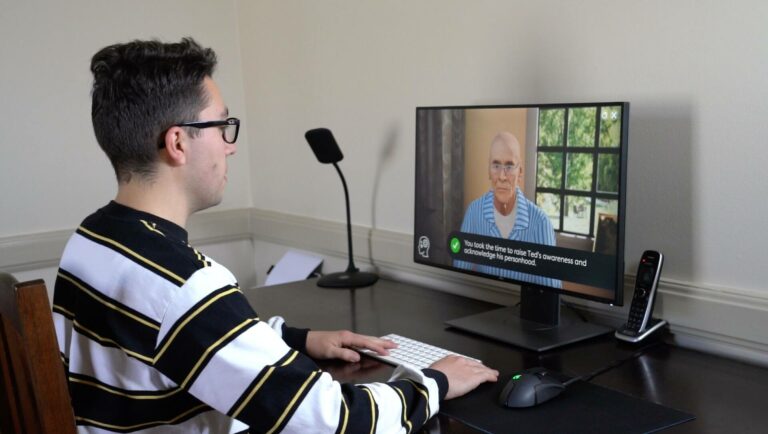
He adds that it gets used as a training programme for aged care centres, with Dementia Australia also running in person sessions with ‘Talk with Ted’.
Andrew Vouliotis has always had a passion for building interesting things. And that started in high school. “While I was at school in Alphington Grammar, I actually built a piece of software for the teachers to use. It was like a small timetabling tool. And that taught me that I really loved the technology sector. And then, after I graduated from Swinburn University, I realised that I love the innovation space, to be able to just create amazing tools for people.”
Discussing the recent progress in the artificial intelligence sector overall, Vouliotis said that change is on the horizon.
“I can’t personally quantify what that change will be right now. But I think there’ll be exciting things coming. Many people can become faster, more efficient, more creative because of these AI tools. It democratises creativity, in a way. However, I should also clarify that it is not at a point where it can replace specialists.”
Vouliotis feels incredibly proud to be able to apply the technology and have such good impact on society. He says that he is humbled to be working with such a great team from Deakin University and Dementia Australia, who have joined efforts to make this possible.
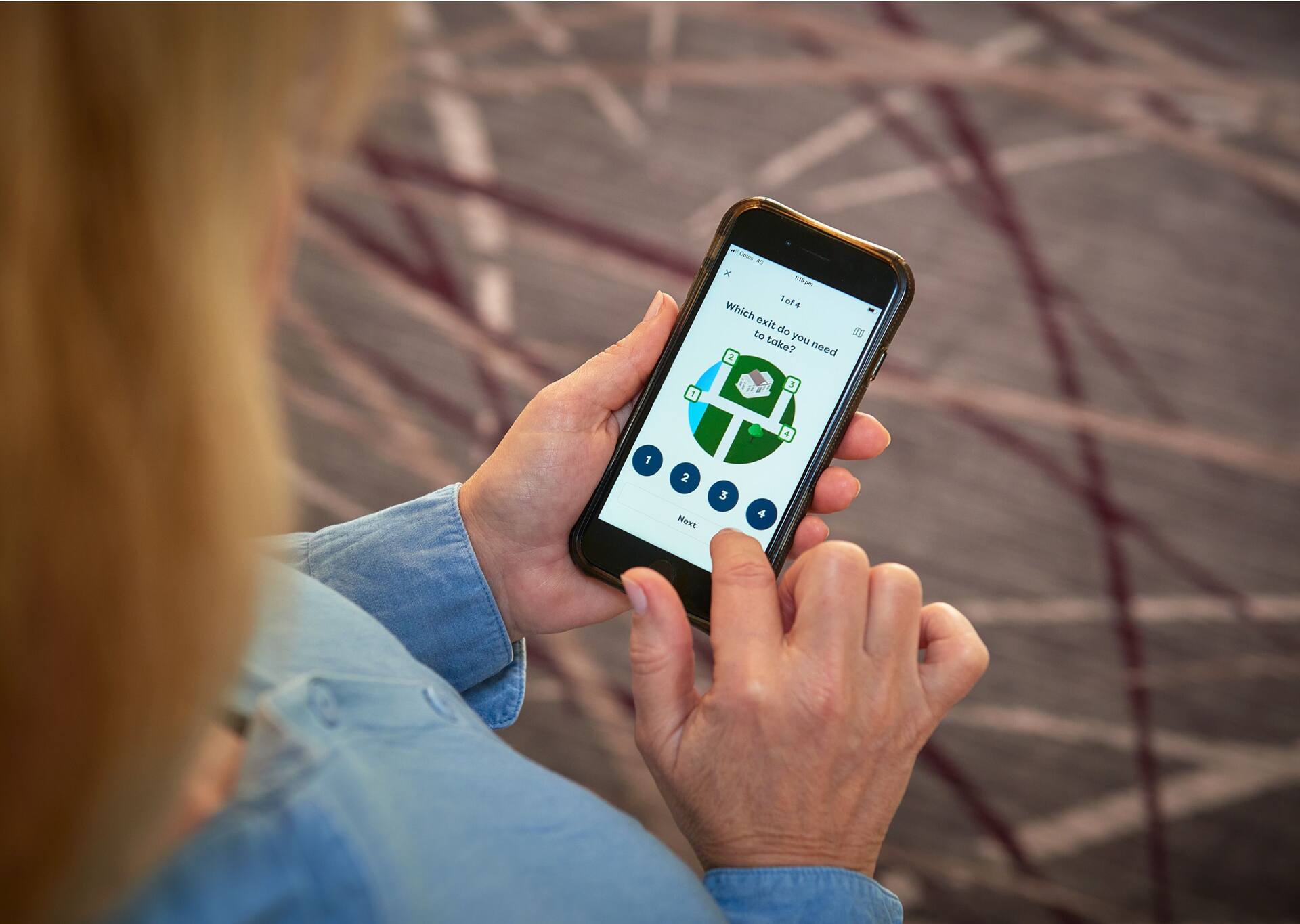
“It’s an honour to lead these projects with such an amazing team.” he concludes adding how excited they are about representing Australia for the international iAwards for BrainTrack, in Hong Kong this December.
BrainTrack is available for download for free through the Apple App Store or Google Play.
For more information about Talk with Ted, visit dementialearning.org.au/technology/talk-with-ted
The National Dementia Helpline is 1800 100 500.

